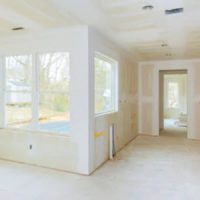What is a Home Warranty?

A home warranty plan is a plan that protects your home and your property from breakdowns, failures or defects that are made by, or passed on from, the builder. The breakdowns can be structural, such as those that go to the construction of the building, but can also warranty property in the home, such as appliances.
Warranties and Insurance
What makes home warranties so important is that unlike homeowners insurance, home warranties will warrant wear and tear, if the breakdowns are caused by faulty construction. Insurance usually will only pay for specific, unexpected events, like weather or a burst pipe-not for slower, progressive “breakdowns” caused by time or use.
Like an insurance policy, many home warranties have exclusions, listing that they do not cover or warranty certain things. However, in many cases, exclusions may be unenforceable as being against public policy. Courts have stricken from warranties provisions that try to exclude building code violations or deceptive trade practices claims.
Every Project Has a Warranty
Every builder of a home does, by law, warranty the workmanlike product of what they build—in other words, regardless of whether a builder or construction company says there is a warranty, the law assumes there is some warranty that the homeowner or developer or whoever the construction company is working for, is receiving. That warranty assures that the construction will not be faulty, or below market, workmanlike standards.
What Warranties Contain
Warranties also should “connect” the homeowner (or the developer) to all subcontractors who are working on the property. This makes sure that they are all bound by the warranty, and that they can all be sued if there is a breach of the warranty.
However, warranties can often differ on time length. For example, how long after a developer or homeowner takes a completed home, will the construction company be on the hook for repairs? At some point, defects, problems or other failures of the property are not the fault of, or even related to, the construction. These time frames are listed in the warranty.
Many warranties contain vague or undefined terms, which can lead to problems. For example, a warranty may say that a structure must be built with “good materials,” or “with good quality.” What that actually means is open for interpretation.
Even conditions outside the home may fall under the home warranty. For example, if there is only one access road to the property and that road floods, or gets covered in snow, depending on the home warranty, the builder may be responsible for ensuring that there is access to the property being sold.
Procedures for Claims
For consumers looking to make warranty claims against construction companies, there are strict procedures that must be followed.
Homeowners have to give builders notice of a warranty claim and give the contractor the opportunity to inspect the property and to assess the validity of the claims. After any inspection, the builder may have the right to make repairs, cure, or fix the problem.
Call our Fort Lauderdale construction attorneys at Sweeney Law P.A. at 954 440-3993 to help you with any defect, warranty, or other construction law claim.
Resource:
leg.state.fl.us/statutes/index.cfm?App_mode=Display_Statute&URL=0600-0699/0634/Sections/0634.312.html
